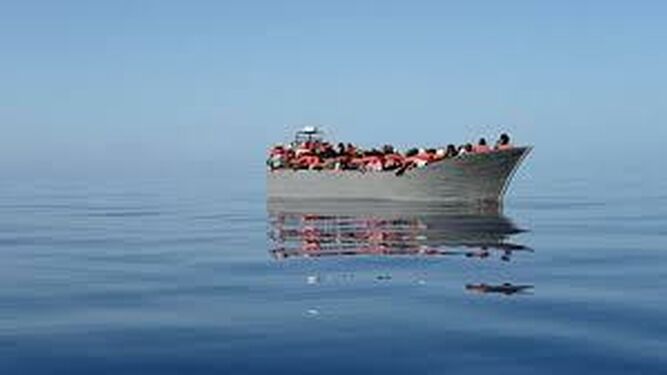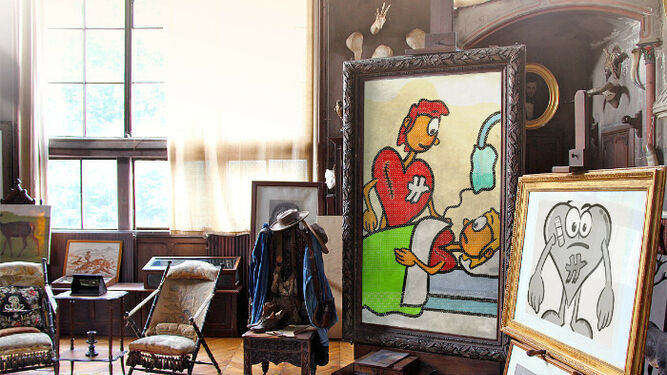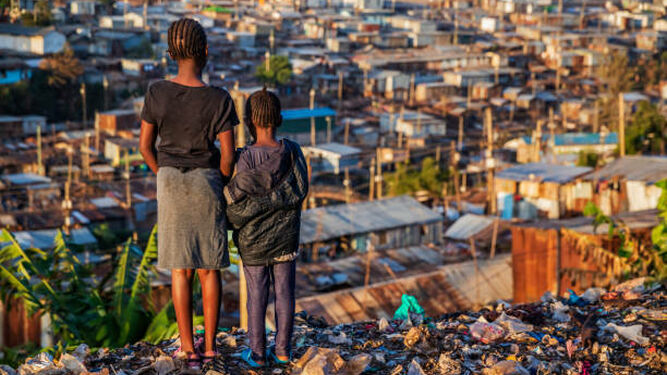A radical spirituality for another civilization

“The poor in spirit – Jesus would say – only have God, since they have detached themselves or will detach themselves from what belongs to all creation”
“Being poor is also a sin, the times you work or steal to be rich. Not, however, when you do it to feed your children. Or take land. The land belongs to everyone equally”
Episodes of environmental catastrophes of enormous proportions are occurring on planet Earth. In Latin America, the floods in southern Brazil have caused incalculable damage. They say that those of 2024 were worse than those of 2023.
The winds of 124 km per hour a few days ago in Santiago de Chile did not cause as much damage as in Porto Alegre, but they are unprecedented. They themselves are an excellent metaphor: on the least expected day, the wind can destroy light, water, roofs and people. ¿Isn’t our own life exposed to strong winds that are making it difficult for us to stay on our feet? It’s not just a matter of climate. A virus, growing crime, large-scale mining and new wars devastate towns, generating massive migrations. Artificial Intelligence accelerates history. It will increase the speed of entry into a tunnel that we do not know if there is an exit.
The trip of your dreams, with RD
Will the roots of Santiago’s trees withstand the cyclone of 2025? What will we base our existence on in the remainder of 2024? This is the radical question, valid equally for believers and non-believers.

It is then worth asking: Is there a spirituality so deep that it allows us to hold onto life like roots allow trees to resist tornadoes?? Is there some way of existence that roots us deeply in the cosmos in which stones and fire, air and water, living and non-living beings, the rich and the poor mutually depend? Is there a way to tie people of various religious and philosophical faiths into a single herd?
Of course.
Human beings are spiritual individuals. We count on the Spirit to co-belong and make us co-responsible for the most distant of galaxies and the sigh of the smallest of atoms. The same Spirit rages against ego and selfishness. The fate of the universe is a collective demand. The greatest poverty is not counting on anyone.

But, taking things back to their origin, any human being brought into existence is poor. This same condition of poverty constitutes the stump from which the branches sprout that resist a life as difficult as the one that is slipping through our hands. The poor person -whether economically due to health reasons, lack of housing, work or because he lost his wife or children; the poor migrant, displaced or refugee; the people who stay in tents or between boards on the edge of the train tracks; Even any of us, victims of our own ineptitude, must recognize that we are not capable of giving ourselves life and, instead, we must be grateful for it. Thank Someone or Something. Nobody is capable of saying “I deserve”. Gratitude is the highest spiritual expression. It is only comparable to the embarrassed recognition of someone who boasted of earning the land, the wetlands, the best of the universities and people who serve him and are afraid of him. Being rich is a sin. Sharing wealth is also no merit. It corresponds.
The poor in spirit – Jesus would say – only have God, since they have detached themselves or will detach themselves from what belongs to all creation. Being poor is also a sin, the times you work or steal to be rich. Not, however, when it is done to feed the children. Or take a piece of land. The land belongs to everyone equally.
Solidarity is the test of authentic spirituality There should be no other proof of the existence of God. Attention theologians!

Radical spirituality, the inspiration of owing our lives to each other and mutual coexistence makes us better, unites us closely and fulfills us as people at the deepest level. One becomes someone if one recognizes one’s dependence on others. The invocation of eternal life is not alienating when eternity is anticipated among mortals as a triumph of a cosmic conjunction.
Sharing the spiritual life of the poor is essential. They know that they live on faith and that existence has meaning when they get their daily bread. Riches, on the other hand, isolate and disorient. They introduce people to superficiality. They end up killing the rich – says the Bible – and their accumulation kills the poor.
Sharing is the theme. Share what you have and what you don’t have, and receive as if you didn’t deserve to receive anything at all. This is the key to a new civilization. The civilization of gratitude that will surpass that of desert.





